Planning your own trip? Prepare for your trip
Use Rough Guides' trusted partners for great rates
- Óbidos
- Crato
- Portugal
Book your individual trip, stress-free with local travel experts
One of Europe’s oldest extant nations, Portugal’s landscape is crowned with castles and dramatic walled towns. Then there’s the mountains and beautiful broad beaches; the hearty homecooked food and world-class wine (when you travel to Portugal, you’ll most likely be struck by how affordable it is).
Meet your Portugal local travel expert
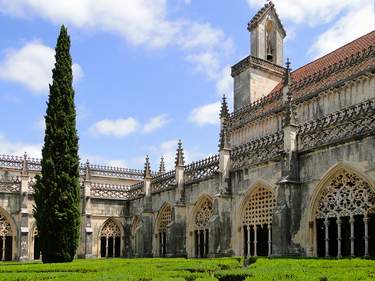
11 days / from1744 USD
A self drive to Portugal's North and Center
Starting in fascinating Lisbon, this trip allows you to discover Portugal both on your own as well as with guided tours. Driving further up north you'll explore Coimbra and Porto before heading to the Douro Valley and Alentejo.
view tour ⤍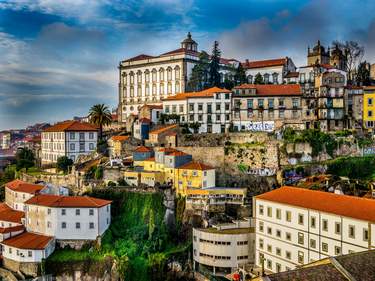
8 days / from1150 USD
Porto and the North of Portugal: off the beaten track
From Porto, you'll discover the most fascinating parts of Northern Portugal: go on a hike through unique biodiversity around the Paiva river, take a jeep tour through the slopes of the Serra da Arada and taste the wonderful wines of the Douro valley.
view tour ⤍
12 days / from1706 USD
The best of Portugal: Lisbon, Porto and the Algarve
Portugal offers many highlights but when you're short on time, this trip is ideal to cover all the highlights: the capital city of Lisbon, historic Porto, lush Douro Valley and the stunning beaches of the Algarve are all part of this trip.
view tour ⤍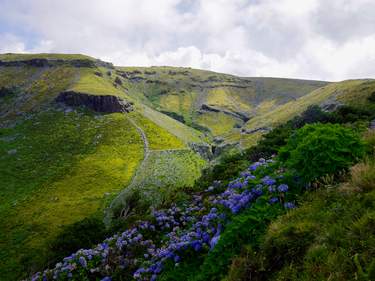
7 days / from2687 USD
Azores Wild Nature
Get ready to discover what the largest island of the Azores, São Miguel, has to offer in this short adventure-packed 6-day trip. You will get to swim with wild dolphins, abseil or jump down waterfalls, ride a mountain bike through the Sete Cidades and relax in a natural spa. Adventure awaits!
view tour ⤍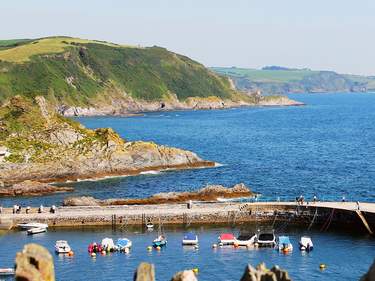
9 days / from2943 USD
Madeira and São Miguel - guided island adventures
Visit two of Portugal's autonomous regions: Madeira, the island of eternal spring as they call it, as well as São Miguel, nicknamed the green island. Guided excursions will take you to the highlights of both islands and there's plenty of time to discover on your own or simply relax.
view tour ⤍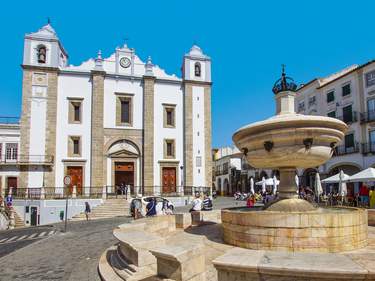
11 days / from1788 USD
Lisbon and the South of Portugal: exploration and relaxation
Take your rental car and discover Lisbon, Sintra & Cascais before heading to Alentejo. This fascinating region features many historic gems to discover, as well as a unique cuisine to taste. Finish your trip with some beach days in Tavira on Portugal's Algarve coast.
view tour ⤍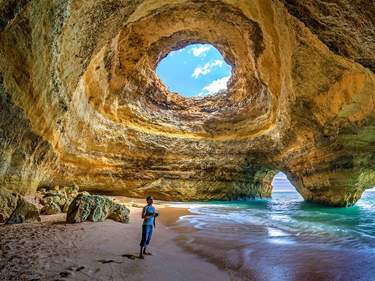
11 days / from3592 USD
Discovering the coast of Portugal
Explore the beautiful cities along the coast of Portugal. Start your journey discovering historic sites and wineries in Porto, from there you will head South to Lisbon. Along the way, you will get a chance to visit charming coastal towns, dramatic cliffs and national parks.
view tour ⤍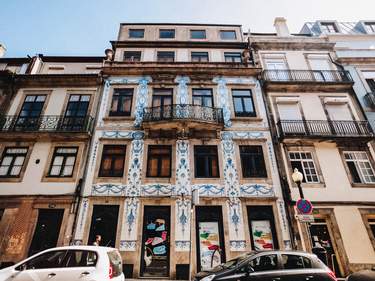
9 days / from3183 USD
The cities of Portugal
Explore the two big Portuguese cities, Porto and Lisbon. Though you won't only be exploring the cities, this trip will take you to see the beautiful Duoro valley by bike, the Minho region (the birthplace of Portugal), learn more about winemaking, relax on the beach of Nazaré and much more!
view tour ⤍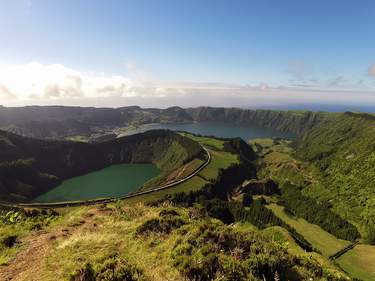
10 days / from1853 USD
Fascinating Azores - Terceira and São Miguel
Two of the magic Azores islands await in this itinerary: drive your own rental cars across Terceira and São Miguel and join one of the many adventurous outdoor activities the islands have to offer: go whale watching or canyoning or simply enjoy the landscapes on leisurely strolls.
view tour ⤍The information that follows is from The Rough Guide to Portugal, our in-depth Portugal travel guide - check it out for your all your Portugal travel needs.
For more facts about Portugal travel, read our full tips about travelling in Portugal article.
From the picture-perfect Algarve, to historic cities that combine old-time charm with contemporary buzz, to the green north, travel to Portugal serves up a rewarding range of landscapes and experiences across its regions.
The south-facing coast of the Algarve is the country’s tourist epicentre – it’s here you’ll find the archetypal Portuguese cove beaches, fringed by rock stacks and cliffs. If it is beaches you are after, you have almost the entire west coast of the to choose from.
The south of the country is dominated by the Alentejo region, whose wide-open spaces, olive plantations and vineyards invite leisurely exploration. Here you’ll find a Mediterranean-type climate, whitewashed villages bedecked with flowers.
Thanks to its waterfront location and quirky attractions that combine a place-that-time-forgot feel with a modern vibrancy, Lisbon is a fascinating place to spend a few days. Its hills and cobbled alleys are still served by ancient trams that rattle along streets. Nearby, the UNESCO heritage site of Sintra enjoys a cool mountainside location, which made it a favoured summer destination for Portugal’s royals.
The north of Portugal feels far less Mediterranean - the rolling hills are green and lush, and the coastline cooler. At the far north of the Porto e Norte district lie the remote towns and villages of Trás-os-Montes, while to the west Peneda-Gerês is Portugal’s only national park, a verdant landscape of wooded mountains and gushing streams.
Rising up from the banks of the river Douro, Porto, is Portugal’s second city, and wonderfully atmospheric, particularly around the Ribeira, with colourful buildings lining the waterfront. For those looking for sunbathing, there are also a few beaches near Porto.

Colourful Sintra, Portugal palace Palácio da Pena © Shutterstock
Here’s a selection of famous landmarks, attractions and places in Portugal everyone should see in a lifetime - places that’ll hands down enhance your Portugal travel experience.
Discover more great places to see in our ultimate list of things not to miss in Portugal.
Internationally famed for its beaches, golf courses and tennis centres, Portugal also has an ideal climate for a variety of adventure activities, with many regions now offering paragliding, abseiling, rafting, canyoning, caving, mountain biking and 4WD expeditions. There’s most scope in the mountain areas - notably the Serra da Estrela and Peneda-Gerês parks - and on the major rivers (Douro, Mondego and Zêzere), but many of the smaller nature parks and reserves also have local adventure outfits.
Chances are, when you visit Portugal you’ll make time to enjoy some of its amazing coastline. The Algarve has the country’s most popular sandy beaches, many of them sheltered in coves – and the sea is warmest on the eastern Algarve. The western coast has some stupendous stretches of beach, but they face the full brunt of the Atlantic Ocean, making for great surfing ad wind-surfing opportunities - Portugal travel at its most exhilarating. The more protected west coast of the Algarve is excellent for beginners and experienced surfers alike - don’t miss giving it a go when you travel to Portugal.
While Portugal only has one national park - the Parque Nacional da Peneda-Gerês in the north -over forty other protected areas offer incredible walks. Special mention must be made of the lesser-trodden trails of the highest mountains in Portugal - taking in historic villages, waterfalls, windswept rocky plateaus and stupendous views, routes in the Parque Natural da Serra da Estrela are a must-visit for adventurous hikers who visit Portugal. You might want to hire a local Portugal guide with hiking know-how.
Some of Portugal’s other dramatic walking landscapes include the limestone caves of the Serras de Aire e Candeeiros, the island hideaway of the Ilha Berlenga (reached from Peniche), and the lagoons, dunes and marshes of the Ria Formosa.
Whichever region you choose when you visit Portugal, you won’t be short of historic sights to soak up. From Alfama, Lisbon’s ancient heart, with its Moorish castle, to the sparsely inhabited medieval village of Monsaraz. Located near the Spanish border, it sits high above a plain of vineyards and olive groves, with a stunning castle, and charming streets speckled with handicraft shops.
Meanwhile, medieval charm awaits in Coimbra, one of the best places to travel in Portugal for history and contemporary culture. Home to Portugal’s oldest university, the old town exudes old world charm, and a liveliness generated by the student population, with plenty of opportunities to hear fado music - listening to this moving, melancholic traditional song accompanied by guitars is a Portugal travel highlight.
Most large towns have a daily municipal market to pick up fresh meat, fish, fruit, veg and bread, and these are often supplemented by a larger weekly affair, where you’ll also be able to buy clothes, shoes, ceramics, baskets, flowers, and a million-and-one other things you never knew you needed. Shopping in these markets is a wonderful way to experience Portuguese life, and pick up supplies and gifts to take home.
The best flea market in the country is Lisbon’s Feira da Ladra (held on Tuesday and Saturday), while the small town of Barcelos comes alive on Thursdays with one of the best open-air markets in Europe, held since medieval times. If you’re looking to take home some of the loucas de Barçelos, (local white and yellow pottery), traditional basketry and other crafts, you’re in the right place here - it’s a memorable highlight of any Portugal trip.
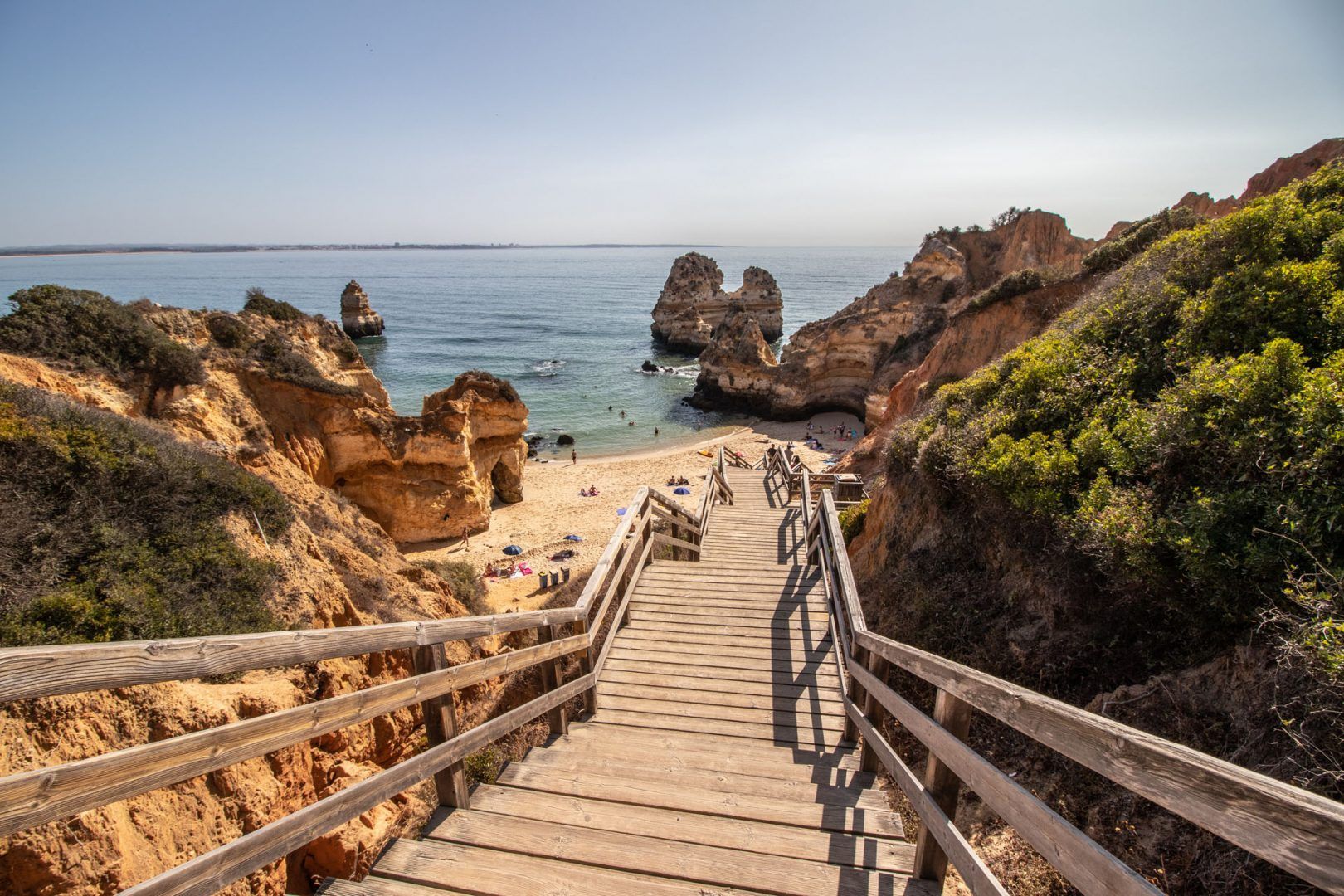
Beach of Camilo, Algarve, Portugal © Shutterstock
If you’re wondering what’s the best month to go to Portugal, the good news is that one of Portugal’s perks is its year-round sunshine. Although the winter months can be a little chilly, average daytime temperatures are still around 16 degrees. Overall, the best time to travel to Portugal is during late spring (March to May) when it’s warming up, and early autumn (September to October) when the searing heat is losing its edge.
Find out more about the best time to visit Portugal.
You can fly direct to Lisbon, Faro and Porto from airports around the UK and Ireland and from all over Europe, also from New York in the US and Toronto in Canada. Alternatively, you could consider a combination of driving, rail travel and ferry. Although this could work out more expensive than flying, it’s a great way to see more of the landscape, not to mention leaving a smaller carbon footprint.
Read on for the best ways to get to Portugal.
An essential part of any Portugal travel guide is arming travellers with a few pointers about getting around. If you’re wondering how to travel around Portugal, be assured that it’s pretty easy and cheap by bus or by train. Bear in mind, though, that stations can be some distance from a town - worth knowing if you travel to Portugal for an off-the-beaten-track trip. As for driving, roads are pretty good, although some rural roads provide a teeth-juddering ride. A top bit of Portugal travel advice is to avoid driving around packed popular resort regions in summer.
Learn more about transportation and how to get around Portugal.
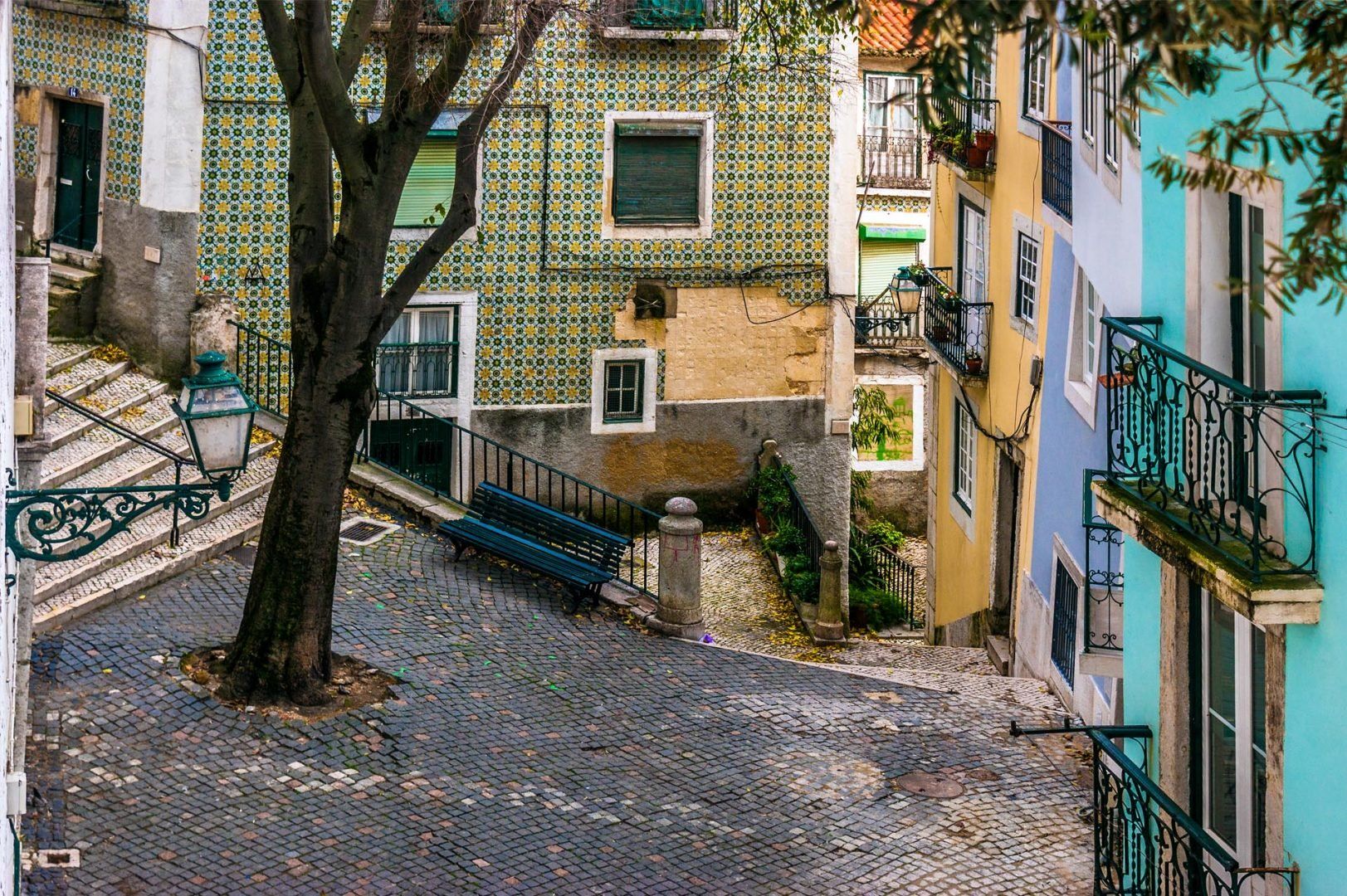
Street and cobblestone floor in the old neighborhood of Alfama, Lisbon © David Evora Marquez/Shutterstock
When considering where to stay in Portugal, you’ll find accommodation is relatively low cost compared with other western countries, although Lisbon and Porto are pricier, as are resorts on the Algarve in summer. Pousadas are some of the most charming best places to stay in Portugal. Usually located in historic buildings, and with facilities and service often matching five-star hotels, these make for a memorable Portugal travel experience.
Discover how to find the best accommodation in Portugal.
Food in Portugal tends towards the simple and traditional, with meat usually grilled or slow-cooked into a stew, and seafood a feature along the coasts, for obvious reasons. Trying excellent regional cheeses is an absolute Portugal travel must - the Queijo da Serra from the Serra da Estrela, is a particular standout. And of course, Portugal is the birthplace of Port - true Port comes only from Porto so be sure to try some when you visit Portugal.
Read more about local food and drink in Portugal.
Portugal’s carnival celebrations are a match for those in Rio, with Lisbon and towns of the Algarve particularly good destinations for joining in the revelry. Almost every village in Portugal has its own festival (festa) or pilgrimage (romaria), usually to celebrate the local saint’s day or the regional harvest. Among major national events, Easter week and the Santos Populares festivities stand out - celebrated throughout the country with splendid religious processions.
To include a festival in your trip to Portugal, check out the month-to-month overview of festivals in Portugal.
Lisbon lives up to its reputation of having legendary nightlife, with the quiet streets of Bairro Alto (upper town) belying the area’s jumping nightlife credentials, where trendy bars, restaurants and nightclubs rub shoulders with traditional fado houses. Lisbon’s Alcântara area is also home to dockside warehouse conversions housing cool cafés, restaurants and clubs.
Thanks to its student population, historic Coimbra is also known for its nightlife, especially the bars around the Sé Velha cathedral. On the Algrave, picturesque Albufeira has a lively bar scene focussed around the pedestrianized Rua Cândido dos Reis. Late-night clubs can mostly be found in suburbs east of the centre, especially around Oura’s Avenida Dr. Francisco Sà Carneiro (aka The Strip).
Portugal's relatively small size allows you to discover much of the country within a short time while also giving you the chance for more in-depth exploration should you have longer to play with.
Ideas for a weekend in Portugal include booking a city break to Lisbon and taking in a day trip to stunning Sintra. Alternatively, Porto is also an excellent destination for a long weekend - it boasts beautiful architecture, boutique hotels - and then there’s the port. Among ideas for a week or more in Portugal, you could consider a coast-based itinerary, and beach-hop along some of the country’s finest spots to surf and soak up the sun. Alternatively, epicures might want to explore Portugal’s world-class wines through visiting vineyards.
For more inspiration see some of the Portugal itineraries from our Portugal travel guide and local travel experts.
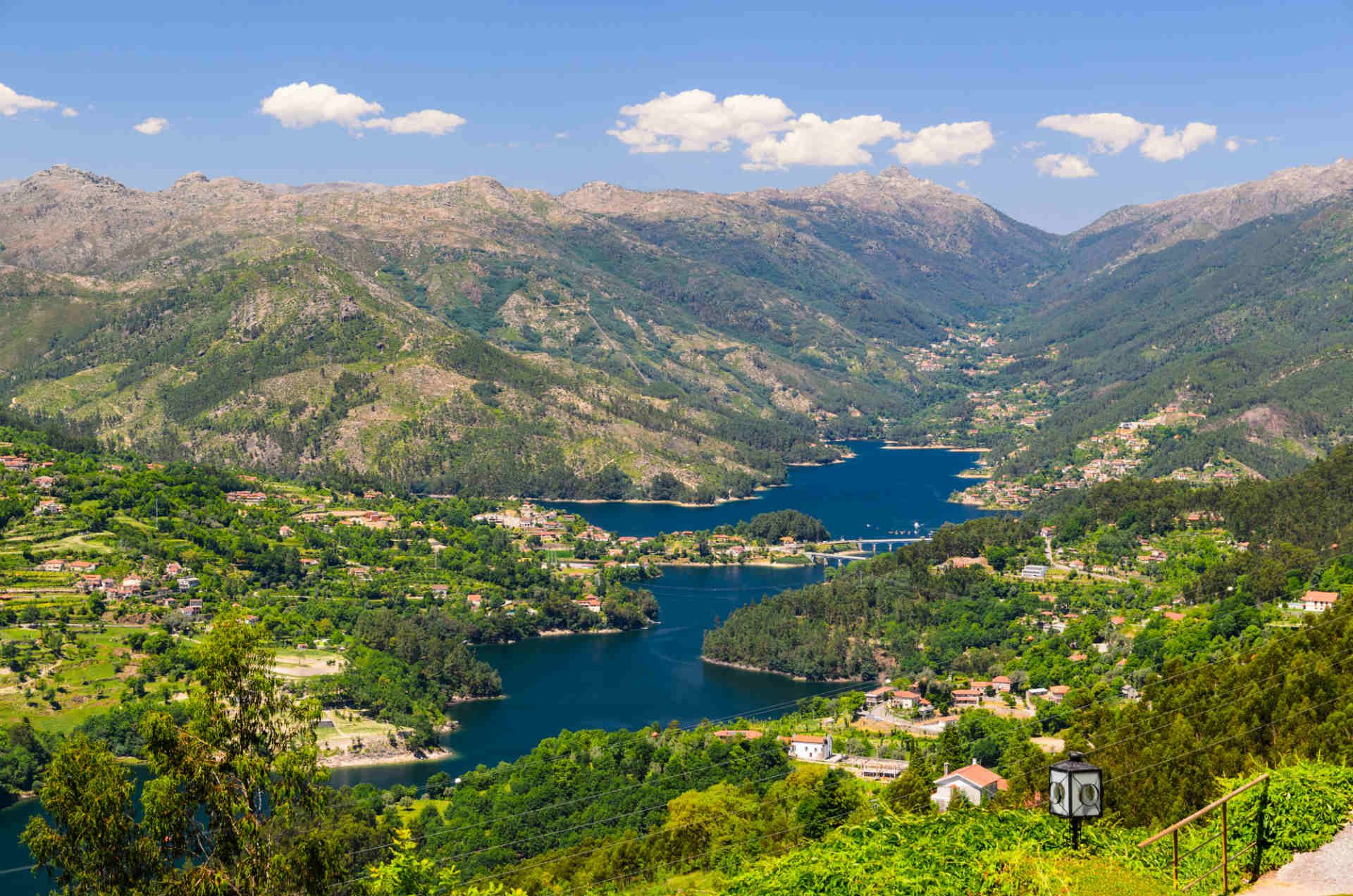
Cavado river and Peneda-Geres National Park in northern Portugal © Sergey Peterman/Shutterstock
From travel safety to visa requirements, discover the best tips for traveling to Portugal
For advice about practical matters when travelling in Portugal, check the travel advice for Portugal.
If you’re wondering whether Portugal is expensive to travel in, good news - Portugal remains one of the EU’s least expensive destinations. Lisbon, Porto and the Algarve are inevitably the most expensive places to visit, but even here you’ll get a better deal on most things than in many other European countries.
In terms of how much you should budget for a trip to Portugal, if you share a room in cheaper hotels, use public transport and stick to inexpensive restaurants you could have a reasonable time on somewhere between €50 and €80 a day. Stay and eat in fancier places in the main cities and you’re looking at more like €120 a day (but in five-star beach resorts, this figure won’t cover your room).

Coimbra, Portugal © saiko3p/hutterstock
By European standards, Portugal is a remarkably crime-free country - people still leave their cars and house doors unlocked in the countryside. However, there’s the usual petty theft in the cities and larger tourist resorts, particularly in the form of pickpockets on public transport and in bus and train stations.
For up to date information about safety and travel requirements for Portugal, check government guidelines. UK nationals should heed Foreign, Commonwealth & Development Office advice, while travellers from the US should check governmental travel advisory guidelines for Portugal.
Use Rough Guides' trusted partners for great rates

written by Mani Ramaswamy
updated 22.09.2021
Plan your tailor-made trip with a local expert
Book securely with money-back guarantee
Travel stress-free with local assistance and 24/7 support
Matthew
Just wanted to express my thanks to Joel and Rough Guides for a wonderful trip! Everything was well-chosen and we just loved all of the hotels, sightseeing...
Read all reviews ⤍